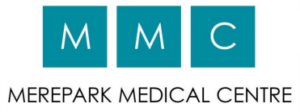Acne is a common skin condition that affects most people at some point. It causes spots, oily skin and sometimes skin that’s hot or painful to touch.
Acne most commonly develops on the:
- face – this affects almost everyone with acne
- back – this affects more than half of people with acne
- chest – this affects about 15% of people with acne
Self Care Techniques
There are some self-help techniques they may help with Acne:
- Don’t wash affected areas of skin more than twice a day. Frequent washing can irritate the skin and make symptoms worse.
- Wash the affected area with a mild soap or cleanser and lukewarm water. Very hot or cold water can make acne worse.
- Don’t try to “clean out” blackheads or squeeze spots. This can make them worse and cause permanent scarring.
- Avoid using too much make-up and cosmetics. Use water-based products that are described as non-comedogenic (this means the product is less likely to block the pores in your skin).
- Completely remove make-up before going to bed.
- If dry skin is a problem, use a fragrance-free, water-based emollient.
- Regular exercise can’t improve your acne, but it can boost your mood and improve your self-esteem. Shower as soon as possible once you finish exercising, as sweat can irritate your acne.
- Wash your hair regularly and try to avoid letting your hair fall across your face.
Visit your Pharmacist
If you develop acne, it’s a good idea to speak to your local pharmacist for advice. Although acne can’t be cured, it can be controlled with treatment. Several creams, lotions and gels for treating spots are available.
You can find your nearest pharmacy at NHS Choices.
When to see your GP
If your acne is making you feel very unhappy or you can’t control your spots with over-the-counter medication, see your GP.
Also see your GP if you develop nodules or cysts, as they need to be treated properly to avoid scarring. Try to resist the temptation to pick or squeeze the spots, as this can lead to permanent scarring.
